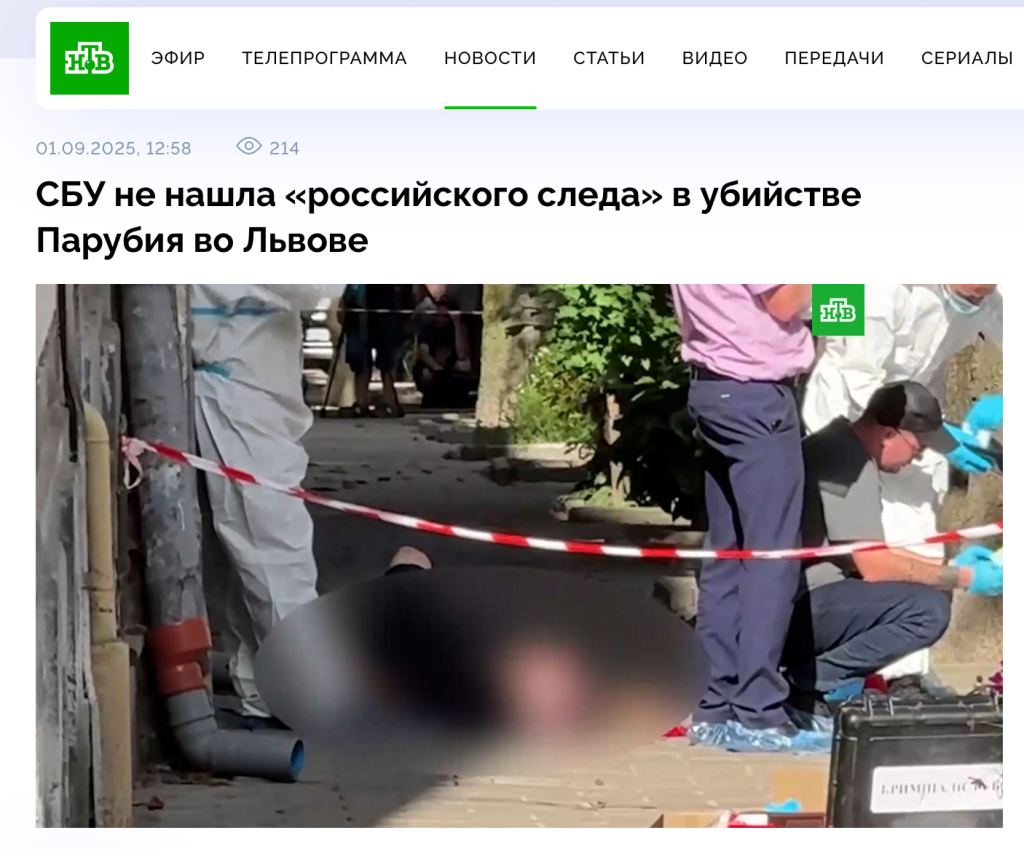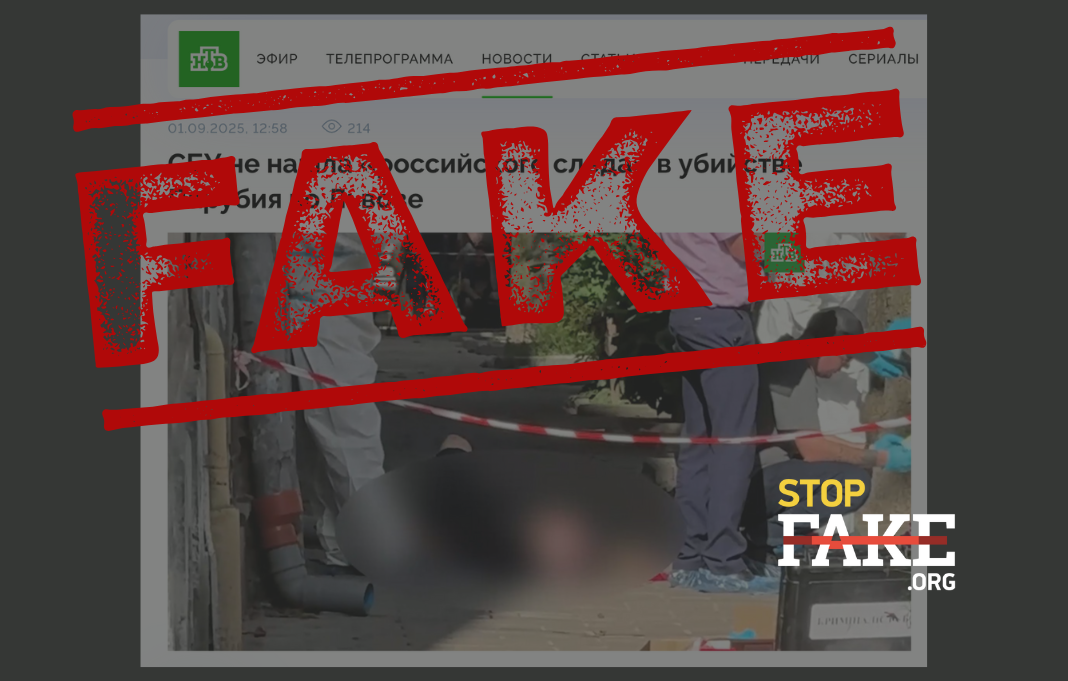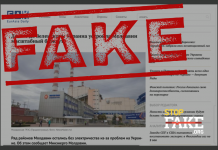Contrary to some online narratives, the Security Service of Ukraine (SBU) indicated in an official statement that Russian intelligence services could have played a role in orchestrating the assassination of MP Andriy Parubiy. Authorities said this information emerged during preliminary investigative and operational activities with the apprehended suspect.
Following news of MP Andriy Parubiy’s assassination in Lviv, Russian media quickly amplified disinformation, claiming that the Security Service of Ukraine (SBU) had uncovered «no evidence of Russian involvement.»
NTV cited Vadym Onishchenko, head of the SBU’s Lviv Oblast department, as saying, «We are working on this version. There is no evidentiary base yet.» Russian outlets seized on this statement to propagate the false narrative that the SBU had definitively found no Russian connection in Parubiy’s killing.

Russian propagandists seized on a single statement from an SBU briefing, presenting it out of context to suggest that investigators had ruled out Russian involvement in Parubiy’s murder. In reality, law enforcement repeatedly emphasized that the Russian angle remains a priority and that the investigation is ongoing.
Vadym Onishchenko, head of the SBU’s Lviv Oblast department, clarified at the briefing: «Russian trace — we are currently working on this version. We had evidence of the involvement of the Russian Federation’s intelligence services; this version is being considered. We are documenting it, conducting an investigation within a criminal proceeding. As soon as there is something that can be made public, it will certainly be communicated to the public. We are working on this version; at the moment, there is no evidentiary base yet within the criminal proceeding.»
The SBU confirmed that current evidence points to possible involvement of Russian intelligence services in the assassination of MP Andriy Parubiy and that the killing was commissioned.
On September 2, during a court session, the accused, Mykhailo Stelnykov, pleaded guilty, describing the act as «his personal revenge against the Ukrainian authorities.» Stelnykov also indicated plans to request a prisoner exchange in order to travel to Russia to recover his son’s body.
Previous reports suggested that Russian intelligence services had allegedly pressured Stelnykov by leveraging his son’s death near Bakhmut to compel him to carry out the murder. During the hearing, Stelnykov denied these claims.





